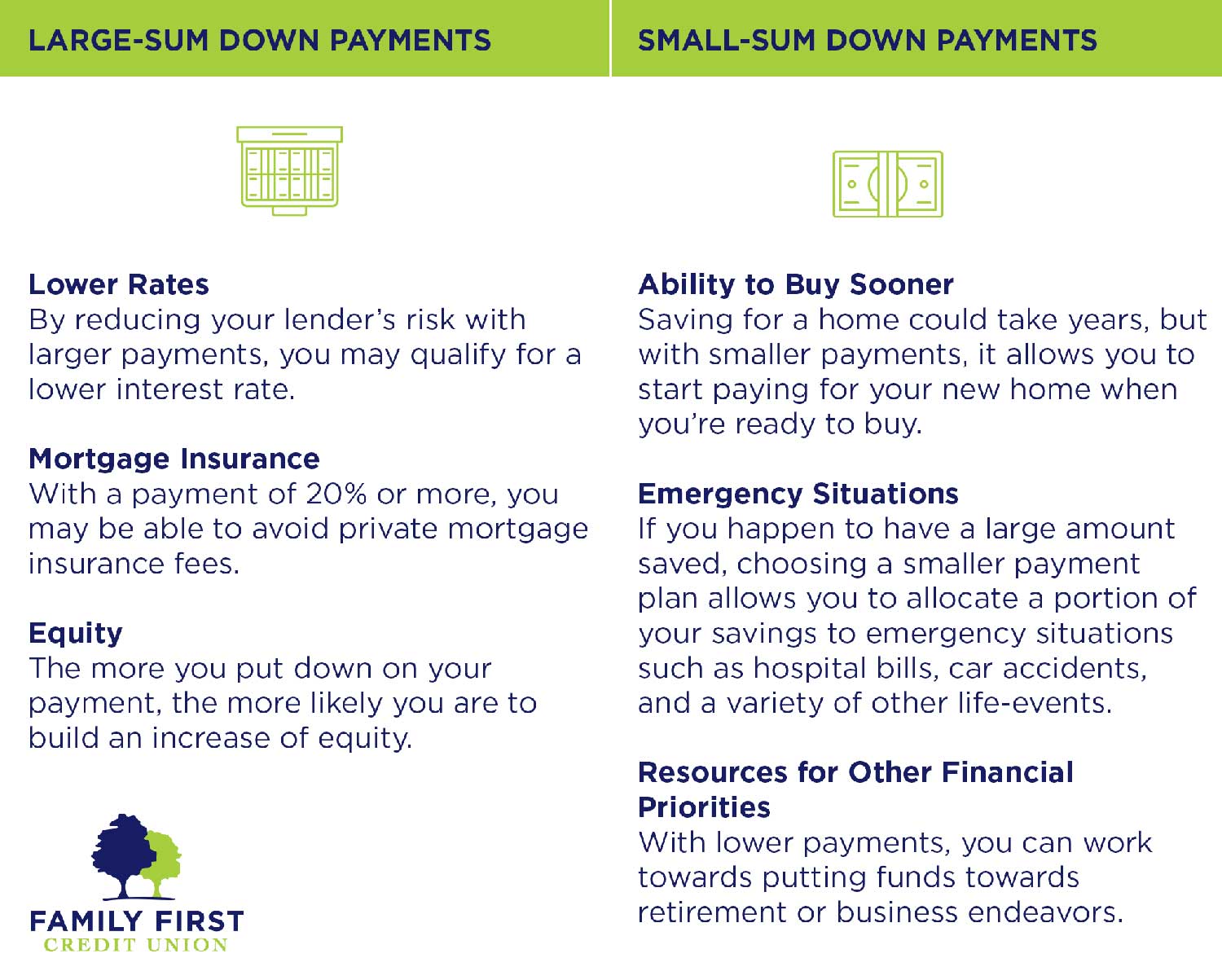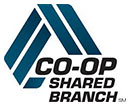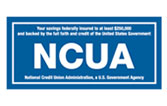Your First Home Down Payment
Last Updated
May 5, 2020
Written by First Family Credit Union
How Down Payments Work and How Much to Pay
You’re excited to buy your first home, but you don’t know where to start. Putting a down payment on your home is one of the first steps in the process and evaluating how much you can dedicate to the down payment is a key step because it can determine the borrowing costs of your loan in the long run. It is important to understand how down payments work so you can pick the payment amount that best fits your financial situation.
What is a Down Payment?
A down payment is an upfront and out-of-pocket cost from your personal savings when making a purchase on a house.
For example, if your monthly budget is $925, paying 3% ($5,000) on a 30-year mortgage would fit the budget of a house that costs around $170,000. Of course, this all comes down to finding the right payment plan for you.
How Much Should I Pay?
There are several factors to take into consideration before determining the best price to pay on your first home. Payments are not a one-size-fits-all type of situation. Some first-time buyers prefer to make bigger payments, while others choose to only pay the minimum on their loans.
Here are a few things to think about when picking between a large or smaller sum for your payment.

For lenders, a down payment helps offset their risk in making a mortgage loan because it means the borrower immediately has some skin in the game – an investment to protect. The more money you pay down, the less the lender stands to lose if you default on payments.
While the amount you’ll be required to put down on a home depends on the type of loan you get, and on the lender’s requirements, it’s important to work with your credit union or bank to determine what you can safely and feasibly afford to get you the best return on investment.
Here are some of the minimum requirements of some common loan types:
- Conventional Mortgages: 3% – 5%
- FHA Loan: 3.5%
- VA and USDA: 0%
Learn more about Family First’s mortgage process and advantages here.

Interested in assessing how much of a down payment is affordable for you?
We’re here to help! Let us help you explore your options to make your home buying experience a success. Contact us to schedule a time to meet with one of our Family First Mortgage Experts who can walk you through the home-buying process.



